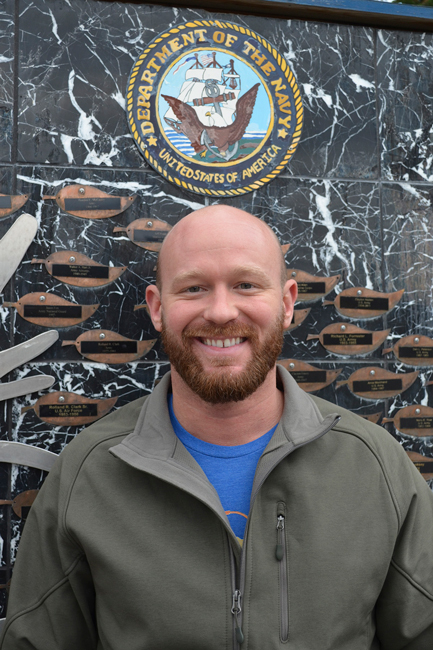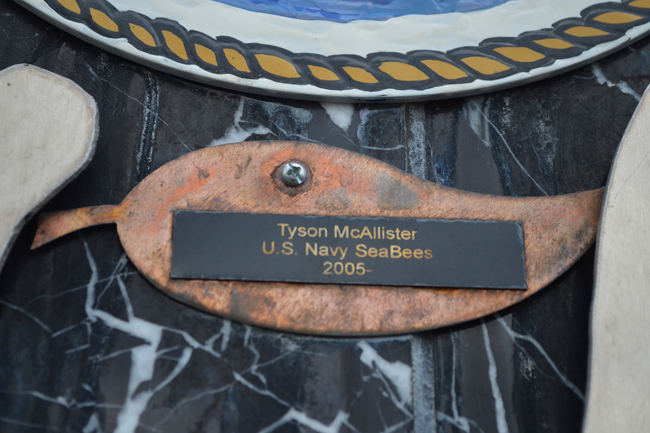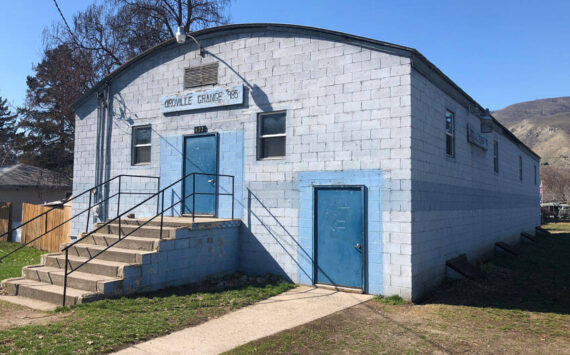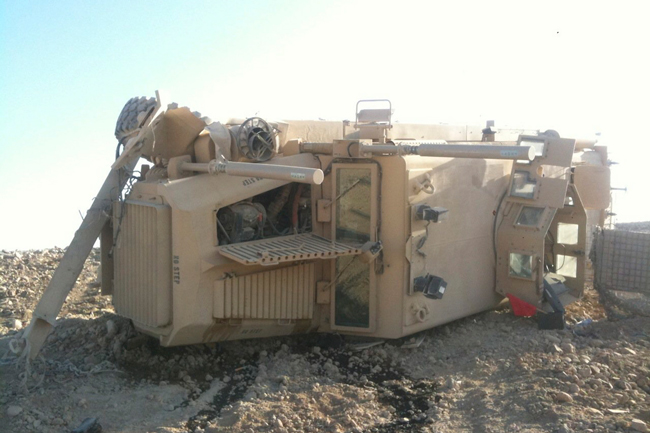

Tyson McAllister’s MRAP the morning after he got hit in Afghanistan. MRAPs weigh between 27,500 to 31,000 pounds depending on the loadout.
“The blast knocked me out. I went unconscious and my knees buckled, so I collapsed inside the vehicle.”
Navy Veteran Tyson McAllister
OROVILLE — Tyson McAllister served tours in Iraq in 2005/06 and Afghanistan in 2010/11 after enlisting with the SeaBees, the Navy civil engineering division. McAllister joined the Navy at the age of 19, a year after graduating Oroville High School in 2004.
After working as a construction mechanic during the Iraq tour, McAllister and OHS classmate Justin Helm, who enlisted at the same time as McAllister, volunteered to be machine gunners on armoured truck convoys for a tour in Afghanistan. The job required riding in the turret of huge, armoured gun trucks called MRAPs (Mine Resistant Ambush Protected) used in convoys to transport military personnel and supplies.
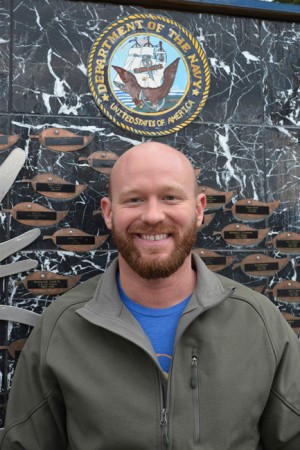

“As machine gunners, we were in charge of making sure the supplies and personnel got from place to place safely when we were traveling around Afghanistan. Those are volunteer positions only, as they are the highest risk for the construction unit,” said McAllister, who discovered just how risky the position was when the MRAP he was riding in got hit by a roadside bomb.
“The blast knocked me out. I went unconscious and my knees buckled, so I collapsed inside the vehicle,” said McAllister. “The front driver side wheel and suspension were blown off the truck. The front end flew up into the air, and when we came back down we rolled onto our side.”
McAllister said the assistant machine gunner, positioned below him, “bear-hugged me around the ankles so I didn’t roll out.”
“The driver was thrown into the passenger side while still strapped into his seat. The blast sheared the bolts holding the seat down, and sent him and his seat into his passenger’s lap. He woke up with his feet on the driver side window,” said McAllister.
Of the four people in the MRAP, McAllister said just he and the driver were knocked unconscious, but everyone in the rig was diagnosed with traumatic brain injuries.
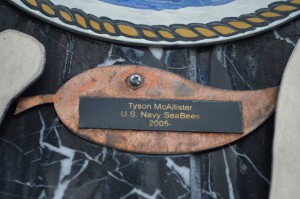

“When the driver and myself came to consciousness and got our communications back up, we radioed everyone and let them know we were OK,” said McAllister. “Justin (Helm) was in a truck about 50 feet behind me, watching the whole thing. From growing up together and playing football together, to watching his best friend get hit. Our communications got knocked out for about three minutes, and I’m assuming that was a long three minutes for Justin.”
McAllister said the roadside bombs, called IEDs (Improvised Explosive Devices) delivered 40 to 50 pounds of explosives and were the leading cause of death for American service members in Iraq and Afghanistan.
“They had their shot at me. They injured me but they didn’t get me,” McAllister said.
He was deployed to Afghanistan from March 2010 to March 2011, and the blast occurred in January 2011.
“Our unit was assigned to be there another seven to eight weeks, but at that point due to the injuries we all sustained, all four of us were grounded to the base,” said McAllister. They rehabbed in a base called Kandahar Airfield.
“We were grounded out of precaution, because if we were to get hit again while the brain was still healing, there would be a good chance of sustaining some permanent damage,” said McAllister, adding, “We are all lucky enough to be still somewhat normal.”
After McAllister first finished boot camp in Illinois, he transferred to a tech school in Ventura, Calif., graduating in June of 2006 as the Honor Graduate, with the highest GPA in his class. After leaving Afghanistan in 2011, he still had two years left to serve in the Navy, which he fulfilled out of a base in Spokane while attending Spokane Community College.
“Justin and I joined in 2005 as Reservists, so we only had to work one weekend a month except when we were mobilized,” said McAllister, adding that Reservists were on call, and “You get that call and you have to put your normal life on hold for any given amount of time.”
After graduating from SCC, McAllister moved to Phoenix, Ariz. where he earned a bachelor’s degree in nutrition from Arizona State University, working for 15 months in medical nutrition therapy at the Phoenix VA Hospital.
McAllister moved back to Oroville this past August, to continue his career closer to family.
Looking back over his military career, McAllister spoke of a different kind of family.
“The military is very tightly knit. You have to trust them with your life, so the camaraderie and brotherhood/sisterhood created is a unique bond,” said McAllister. “It is a crazy, amazing, unique bond you get with people you serve with. Maybe firefighters or police officers might experience a similar thing, but spending multiple months away from your family, they are your family. I could call someone I served with in 10 years and ask for anything I needed.”
McAllister said he noticed the bond not just with people he actually served with, but veterans in general; pointing out that it’s a small percentage of the population that actually serve in the military.
Asked if he would repeat his choice to enlist if he had to do it over again, but with knowledge ahead of all he would have to endure, McAllister hesitated a long time before answering.
º“I am very proud of having done it, but if I knew all the situations I was put in, I wouldn’t do it again. All the time away from my family, and being put in near death situations,” said McAllister. “But I am very glad I did it.”
Given more time to reflect, McAllister voiced additional thoughts.
“Tomorrow is not guaranteed. You have to live each day to the fullest,” said McAllister. “I was 24 when I got hit, and my life could have ended that day. When you are put in those life or death situations, you have to realize that you could die at any point, and you have to be OK with that. It’s not typical that a 24-year old is put in a situation to have to think that way, but it sure makes you realize. Live life to the fullest.”
